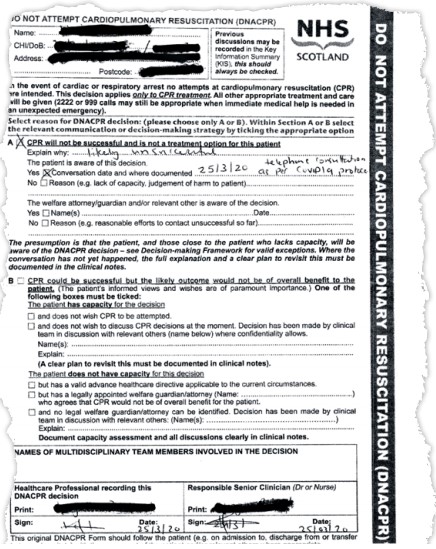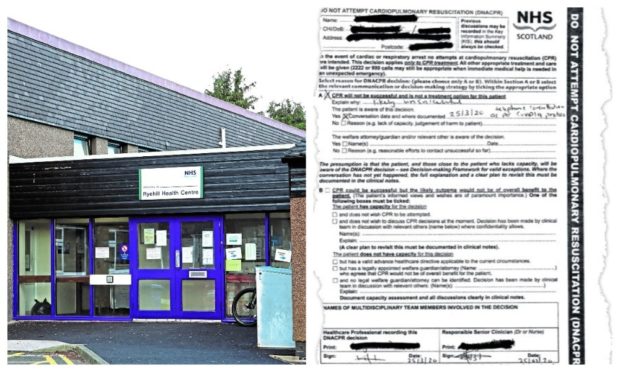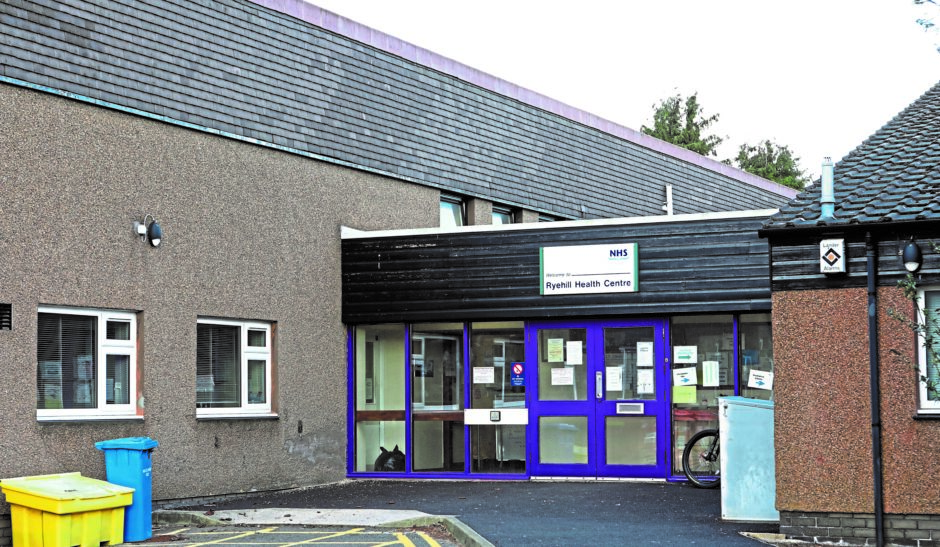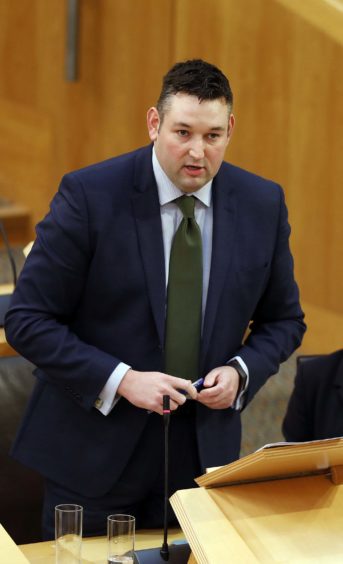A Tayside family has hit out after an 86-year agreed to her GP surgery’s “do not resuscitate” request despite suffering memory problems.
Helen Wray’s mother was sent the do not resuscitate form (DNACPR) after receiving a telephone call from a locum doctor at the Ryehill Medical Practice in Dundee.
It comes as GP surgeries across Scotland receive “updated guidance” on having “anticipatory care planning” conversations with elderly patients.
Mrs Wray said her mother, who the family wish to keep anonymous, was “happy to take a phone call from anyone”, but would rarely remember the discussion.
She said: “They should have known she wasn’t able to agree. The whole concept is a cull of people of a certain age.
“We know my mother’s lungs wouldn’t survive Covid-19 but who’s to say she’s not going to live to 100 if she manages to escape this illness?”
Other GP surgeries in Tayside have also started sending out the forms to “certain” patients.
Mrs Wray said the family found the form by chance in her mother’s room.
The DNACPR order, seen by The Courier, has a hand-written note on it that reads “telephone consultation as per COVID-19 protocol.”

Government body Health Improvement Scotland is sharing updated guidance on anticipatory care conversations during the COVID-19 outbreak.
It stresses this is to ensure “good” conversations are held as widely as possible.
Mrs Wray said the surgery had asked a second doctor, who knew her mother directly, to call the family and apologise after they questioned the form.
She said: “My mother lives in a bubble. In a two-minute conversation she will say the same thing repeatedly.
“My sister, who has power of attorney over my mother, found the letter. We were absolutely appalled.
“Nobody has heard anything about them making these kinds of calls. It came completely out of the blue.”
She said the NHS should have done more to make people aware of the need for conversations around resuscitation.
She said the conversations should have been “family led”, as is the case when someone wishes to go on the organ donor register.
The practice manager at the Ryehill Medical Practice said they did not comment on individual cases and advised contacting NHS Tayside.
A spokeswoman from NHS Tayside said they had not changed their guidance on DNACPR forms during the COVID-19 outbreak.
They did not comment on behalf of GP surgeries in the NHS Tayside area, she added.
A Scottish Government spokeswoman said: “There has been no change to the use of DNACPR forms.
“In circumstances where it is necessary to have difficult conversations with people and their families regarding their care wishes, they should be handled with care and tact.
“We expect clinicians should use their judgement in such situations, however we are clear that we expect that people must always be treated with dignity by health and social care professionals.
“This is a fundamental prerequisite for all care administered in Scotland,” she added
Formal apology demanded
The Scottish Conservatives yesterday said the 86-year-old should receive a formal apology over the “do not resuscitate” scandal.
Health spokesman Miles Briggs said: “Everyone accepts the NHS has to make changes as we battle this crisis. But pushing elderly and very vulnerable patients into agreeing life-ending procedures over the phone is utterly unacceptable.
“This kind of thing should never happen within the NHS, irrespective of the challenges it is facing.
“This lady and her family deserve a very thorough apology.”
Mr Briggs also said the Scottish Government must reassure the public that elderly patients are being properly protected during the coronavirus crisis.
He said: “The SNP Government must also intervene and reveal to patients if this is indeed new guidance being given to GPs. If it is, patients right across the country will be furious.”
North East region Scottish Conservative MSP Bill Bowman said: “Many families will feel that this is a good time to talk about end-of-life care. But some older people in the high-risk category won’t want to burden their families with their decisions.”












